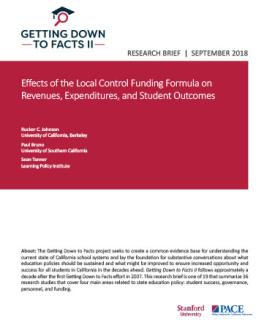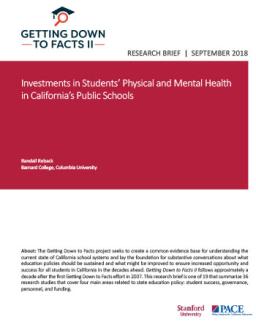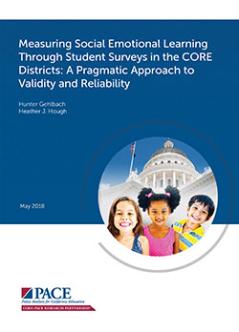Supporting students’ social-emotional, mental & physical health

There is increasing recognition among educators, researchers, policymakers, and the broader public that schools should play a role in students’ mental, physical, and social-emotional health.
This “whole child” approach is designed to ensure that all students in California, particularly those who are historically underserved, have the opportunities and supports they need to thrive academically, socially and emotionally, and in college, career, and life.
A key part of PACE’s research in this area is driven by the CORE Districts’ surveys of students in grades 4–12 on their school’s culture and climate (CC) and their own social-emotional learning (SEL), including growth mindset, self-management, self-efficacy, and social awareness. Our work aimed to better understand SEL/CC measurement and to provide guidance for how schools can better serve students needs in this area.
- ‹ Previous
- 13
- 14
- 15
- Next ›







